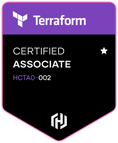What is Next.js?
Next.js is a popular open-source React framework that enables developers to build server-side rendered applications. It offers features such as automatic code splitting, server-side rendering, and optimized performance, making it an ideal choice for creating complex web applications. Next.js supports multiple data fetching methods and integrates well with other popular libraries and frameworks, making it a versatile and powerful tool for building modern web applications.
Next.js vs Angular, Vue, and Svelte/SvelteKit
Here's how Next.js stacks up against other popular front-end frameworks and libraries:
| Framework/Library | Maintained By | Release Year | Language | Virtual DOM | Reactive Programming | Server Side Rendering | Learning Curve | Bundle Size |
|---|---|---|---|---|---|---|---|---|
| Next.js | Vercel | 2016 | JavaScript | Yes | Yes, through the use of libraries like Redux and RxJS | Supports SSR out of the box, and is built specifically for server-rendered React applications | Moderate | Medium |
| React | 2013 | JavaScript | Yes | Yes, through the use of libraries like Redux and RxJS | Supports SSR through Next.js and other third-party libraries | Moderate | Small | |
| Angular | 2010 | TypeScript | Yes | Yes, through the use of RxJS | Supports SSR out of the box through Angular Universal | Steep | Large | |
| Vue | Evan You and the Vue.js team | 2014 | JavaScript | Yes | Yes, through the use of Vue's reactivity system | Supports SSR through the Vue SSR guide and third-party libraries | Easy | Small |
| Svelte | Rich Harris and the Svelte core team | 2016 | JavaScript | No, compiles to optimized vanilla JS | Yes, through Svelte's reactivity system | Supports SSR through SvelteKit, a framework built on top of Svelte | Easy | Small |
React: Next.js is built on top of React and extends its capabilities by providing server-side rendering, static site generation, and other features out-of-the-box. While React is more lightweight and flexible than Next.js, it doesn't come with as many features for server-side rendering and static site generation. Next.js is a good choice for projects that require server-side rendering and/or static site generation.
Angular: Angular is a comprehensive front-end framework that comes with many features out-of-the-box, including a robust component system, dependency injection, and reactive programming support. Angular is more heavyweight than Next.js and may require more time to learn and set up. Angular is a good choice for larger projects that require complex functionality and scalability.
Vue: Vue is a progressive front-end framework that's similar to React in many ways, but it also has less functionality out-of-the-box. Vue is a good choice for small to medium-sized projects that require a lot of flexibility and ease of use.
Svelte/SvelteKit: Svelte is a lightweight front-end framework that focuses on compiling code at build time to reduce the amount of work that the browser has to do at runtime. SvelteKit is a new, emerging framework that's built on top of Svelte and provides more features for server-side rendering and static site generation. Svelte/SvelteKit is a good choice for small to medium-sized projects that require high performance and speed.
10 Reasons Why Your Next Web App Should Be Built with Next.js
- Server-side rendering: Next.js supports server-side rendering out of the box, which can greatly improve the initial load time and SEO of a web app.
- Static site generation: Next.js can also generate static sites at build time, which can further improve the performance of a web app and reduce the load on the server.
- Incremental static regeneration: Next.js supports incremental static regeneration, which allows certain pages to be re-rendered at specified intervals, providing a balance between static and dynamic content.
- Automatic code splitting: Next.js automatically splits code into smaller chunks, which can reduce the initial load time and improve the user experience.
- Built on React: Next.js is built on top of React, which is one of the most popular front-end libraries. This makes it easy for developers to leverage the vast ecosystem of React libraries and tools.
- Easy to learn: Next.js is relatively easy to learn, especially for developers who are already familiar with React.
- Scalability: Next.js can scale easily to handle large volumes of traffic and complex functionality.
- Performance: Next.js is designed to be fast and efficient, with features like automatic code splitting and server-side rendering to improve the user experience.
- Integration with APIs: Next.js makes it easy to integrate with APIs and back-end services, providing a seamless experience for users.
- Community support: Next.js has a large and active community of developers who contribute to the framework and provide support to other developers.
Our Next.js Development Process
At Space-Rocket, we believe that a well-defined development process is key to delivering successful projects. Our Next.js development process is designed to ensure that every project meets our high standards for quality, performance, and usability. Our process includes the following stages:
- Consultation and requirements gathering: We work closely with you to understand your business needs and goals, and to gather requirements for your Next.js application. This helps us to ensure that we are developing a solution that meets your specific needs and delivers value to your organization.
- Planning and architecture: We create a detailed plan and architecture for your Next.js application, taking into account factors such as scalability, performance, and user experience. This helps us to ensure that we are building a solution that is optimized for your business needs and is designed to meet your future requirements.
- Next.js component and page development: We develop Next.js components and pages that are optimized for performance and usability, using best practices and modern web development techniques. Our development process emphasizes code quality, maintainability, and scalability, helping to ensure that your Next.js application is of the highest quality.
- Continuous Integration (CI): We use CI to regularly integrate code changes into a shared repository, allowing us to catch integration issues early and ensure that the application is always in a deployable state.
- Continuous Deployment (CD): We use CD to automate the deployment process, allowing us to quickly and easily deploy changes to your application to your target environment.
- Ongoing maintenance and support: We provide ongoing maintenance and support for your Next.js application, ensuring that it continues to perform well and meet your business needs over time.
Our Promise to Clients
We are committed to delivering the highest quality Next.js development services to our clients. With our experienced Next.js developers, we guarantee that every project will be completed to the highest standards.
Get in touch with Space-Rocket today to discuss your Next.js development needs. Contact us to schedule a consultation or get a free quote.


